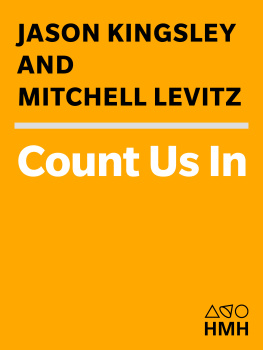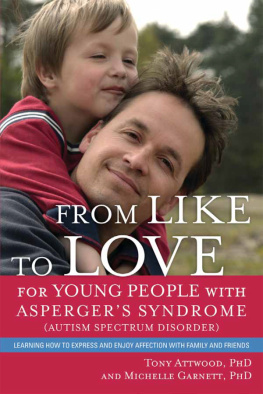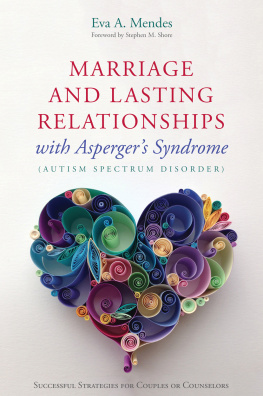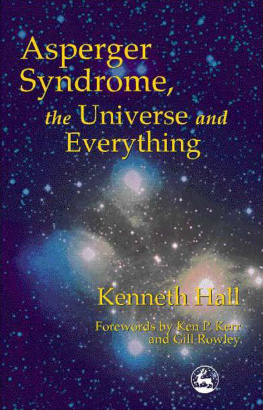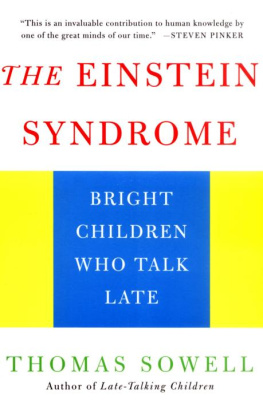Jason Kingsley - Count Us In: Growing Up with Down Syndrome
Here you can read online Jason Kingsley - Count Us In: Growing Up with Down Syndrome full text of the book (entire story) in english for free. Download pdf and epub, get meaning, cover and reviews about this ebook. year: 1994, publisher: Houghton Mifflin Harcourt, genre: Home and family. Description of the work, (preface) as well as reviews are available. Best literature library LitArk.com created for fans of good reading and offers a wide selection of genres:
Romance novel
Science fiction
Adventure
Detective
Science
History
Home and family
Prose
Art
Politics
Computer
Non-fiction
Religion
Business
Children
Humor
Choose a favorite category and find really read worthwhile books. Enjoy immersion in the world of imagination, feel the emotions of the characters or learn something new for yourself, make an fascinating discovery.
- Book:Count Us In: Growing Up with Down Syndrome
- Author:
- Publisher:Houghton Mifflin Harcourt
- Genre:
- Year:1994
- Rating:5 / 5
- Favourites:Add to favourites
- Your mark:
- 100
- 1
- 2
- 3
- 4
- 5
Count Us In: Growing Up with Down Syndrome: summary, description and annotation
We offer to read an annotation, description, summary or preface (depends on what the author of the book "Count Us In: Growing Up with Down Syndrome" wrote himself). If you haven't found the necessary information about the book — write in the comments, we will try to find it.
Two young men with Down syndrome talk frankly about careers, friendships, school, sex, marriage, politics, and independence. Recipient of seven national awards, including the EDI Award from the National Easter Seal Society. Foreword by Joan Ganz Cooney.
Count Us In: Growing Up with Down Syndrome — read online for free the complete book (whole text) full work
Below is the text of the book, divided by pages. System saving the place of the last page read, allows you to conveniently read the book "Count Us In: Growing Up with Down Syndrome" online for free, without having to search again every time where you left off. Put a bookmark, and you can go to the page where you finished reading at any time.
Font size:
Interval:
Bookmark:
Copyright 1994 by Jason Kingsley and Mitchell Levitz
Introduction copyright 1994 by Emily Perl Kingsley and Barbara Gibbs Levitz
Foreword copyright 1994 by Joan Ganz Cooney
Afterword copyright 2007 by Jason Kingsley
Afterword copyright 2007 by Mitchell Levitz
Afterword copyright 2007 by Emily Perl Kingsley
Afterword copyright 2007 by Barbara Gibbs Levitz
All rights reserved. No part of this publication may be reproduced or transmitted in any form or by any means, electronic or mechanical, including photocopy, recording, or any information storage and retrieval system, without permission in writing from the publisher.
For information about permission to reproduce selections from this book, write to or to Permissions, Houghton Mifflin Harcourt Publishing Company, 3 Park Avenue, 19th Floor, New York, New York 10016.
www.hmhco.com
Library of Congress Cataloging-in-Publication Data
Kingsley, Jason, 1974
Count us in: growing up with down syndrome / Jason Kingsley and Mitchell Levitz;
with a foreword by Joan Ganz Cooney.
p. cm.(A Harvest Book)
Originally published: New York : Harcourt Brace. 1994.
1. Down syndromePatientsInterviews. 2. Kingsley, Jason, 1974 Interviews. 3. Levitz, Mitchell, 1971 Interviews. I. Levitz, Mitchell, 1971 II. Title.
RC571.K58 2007
618.92'858842dc22 2006032364
ISBN 978-0-15-603195-0
e ISBN 978-0-547-35085-1
v2.1017
To protect the privacy of some of the people who appear in this book, their names and certain details about them have been changed.
To my mom and dad and Mitchells mom and dad, two helpful families who made this all happen. I would like to thank my parents who made my whole life to the fullest.
Jason Kingsley
Throughout my whole entire life and since I was born, my family has been there for me. This is why I feel that this book is important to me and to my family. At this time, I would like to dedicate this book to the people who I love the most, my family.
Mitchell Levitz
We would like to express our deep gratitude to Rubin Pfeffer, former president of the Trade Division at Harcourt, for his belief in the value and merit of this project and the importance of its message.
Our special thanks to Ruth Greenstein, our editor, for her constant commitment to maintaining the honesty and integrity of the manuscript and her sensitivity, encouragement, and support of Mitchell and Jason in seeing this book come to fruition.
E.P.K. and B.G.L.
In the mid-1950s, when I was publicizing television shows in NBCs press department, I was asked to help with the advance publicity for a Roy Rogers-Dale Evans television special. In a package of background material I was given was a book by Dale Evans called Angel Unaware. It was the story of her and her familys experience with a daughter, born to her and Roy a few years earliera child who had Down syndrome. The little girl had died when she was only three years old.
Dales book was an epiphany for me. Her description of her familys delight in that adorable and affectionate child moved me to tears. So did her account of their sense of loss and bereavement when their little girl died. Later Dale told me that one of her greatest satisfactions in the years after her book came out was seeing, at last, children with Down syndrome in the audiences that came to watch her and Roy perform.
By the early 1970s, I had long since left NBC and was deeply immersed in pioneering educational television for children. I had cofounded Childrens Television Workshop and originated our flagship program for preschoolers, Sesame Street, which began broadcasting in 1969. I had never completely forgotten Dale Evans and Roy Rogerss little angel, but I was reminded of her again personally and forcefully in 1974, when Emily Perl Kingsley, a writer for Sesame Street, called from the hospital to tell me that her son, Jason, had been born with Down syndrome. Although he was only a few hours old, doctors were telling Emily and her husband, Charles, that Jason would never be capable of anything, physical or intellectual, and that he ought to be institutionalized. Even so, Emily and Charles were planning to bring Jason home and would try to bring him up themselves.
Remembering Dale Evans, I said something that probably sounded facile to Emily but with which Im sure she would agreesomething like, It will be a very intense parenting experience. Emily will probably laugh out loud when she reads that quote.
In the months before Jason was born, we at Sesame Street had already begun discussing ways of including children with disabilities on the show. We had realized that if we were designing a series for preschoolers, we were talking about children of a certain developmental age as well as a chronological one. Since Sesame Street has always tried to include and reach as many children as possible, we knew we wanted to have kids with special learning needs on the show, and we had been discussing an adapted curriculum for them.
Thanks in part to Jason and Emily, Sesame Street soon began to include children with Down syndrome: when Jason was only fifteen months old, he made his television debut sitting on Buffy Sainte-Maries lap. When he was six, we showed him counting in Spanish. Jason and Mitchell Levitz, who was three years older and also had Down syndrome, both appeared many times as two of the regular kids on the Street. In one show Mitchell, who enjoys playing soccer in real life, played soccer with Luis.
At first, we also did separate segments with a curriculum and activities for children with special learning needs. But we learned very quickly that these children didnt need a different format. So our next step was to demonstrate that they did not need to be segregated in special educational programs but could be part of a regular elementary school class. We showed Big Bird going to school for the first time. One of his classmates was Mitchell. The show opened our 1981 season, and we designed a poster showing Big Birds class, with Mitchell in the front row.
I consider our decision to include these children as one of our finest achievements. I always will be grateful that Emily was among the earliest writers on the show and became a driving force behind the Sesame Street focus on children with special needs. Thanks to them, Sesame Street became the only show that routinely featured children with disabilitieswithout focusing on their disabilities.
Today, we can be proud of how much the world has changed since Dale Evans told me that children with Down syndrome were nearly always hidden from public view. Times have changed, thanks to parents like the Kingsleys and the Levitzes and to young people like Jason and Mitchell. Parents of other children with Down syndrome have told me how much it meant to them and their own kids to see Jason and Mitchell on Sesame Street. And now we have events like the Special Olympics, television programs like Life Goes On, and most important, new basic civil rights legislation.
The 1990 Americans with Disabilities Act prohibits discrimination against individuals with disabilities. It has often been described as the most sweeping nondiscrimination legislation since the Civil Rights Act of 1964. It provides broad-based nondiscrimination protection for individuals with disabilities in, among other areas, employment, public services, and public accommodations. Long overdue, this legislation will help greatly to make independent living for many more people with Down syndrome and other disabilities a reality instead of a dream.
Jason Kingsley and Mitchell Levitz make abundantly clear, to those who still may not know, what people with disabilities want. They want exactly what the rest of us want. The very fact that they have written
Next pageFont size:
Interval:
Bookmark:
Similar books «Count Us In: Growing Up with Down Syndrome»
Look at similar books to Count Us In: Growing Up with Down Syndrome. We have selected literature similar in name and meaning in the hope of providing readers with more options to find new, interesting, not yet read works.
Discussion, reviews of the book Count Us In: Growing Up with Down Syndrome and just readers' own opinions. Leave your comments, write what you think about the work, its meaning or the main characters. Specify what exactly you liked and what you didn't like, and why you think so.

